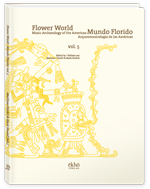An Early Colonial Testimony of Musical Change and Continuity in the Guatemalan Highlands
Matthias Stöckli
This article has as its point of departure in a short passage on music taken from a document that was written in Kaqchikel some time during the 16th century or early 17th century in the Guatemalan Highlands. It puts forward the thesis that said passage not simply deals descriptively with a particular segment of Postclassic Maya music life that had survived the upheavals of the Spanish conquest, but that the sequence of five musical terms it is made up of, may have been consciously composed in order to highlight the continuities and discontinuities that had conditioned such survival. Additionally, the passage’s reference to an important socio-political institution allows us to draw conclusions about the context in which a certain kind of music was made and preserved in both pre-contact and early colonial times.
El punto de partida del presente artículo es un breve pasaje tomado de un documento que fue redactado en kaqchikel en algún momento durante el siglo XVI o a principios del siglo XVII en el altiplano de Guatemala. Se argumenta que dicho pasaje trata no solo descriptivamente de un segmento de la vida musical de los mayas posclásicos que había sobrevivido las convulsiones de la conquista española, sino que además la secuencia de los cinco términos musicales de los cuales se conforma, podría haber sido compuesta con la intención de resaltar las continuidades y discontinuidades que habían condicionado tal sobrevivencia. Adicionalmente, la referencia que hace el pasaje a una institución sociopolítica importante, permite sacar unas conclusiones so- bre el contexto en que se realizaba cierto tipo de música en tiempos tanto prehispánicos como coloniales.




